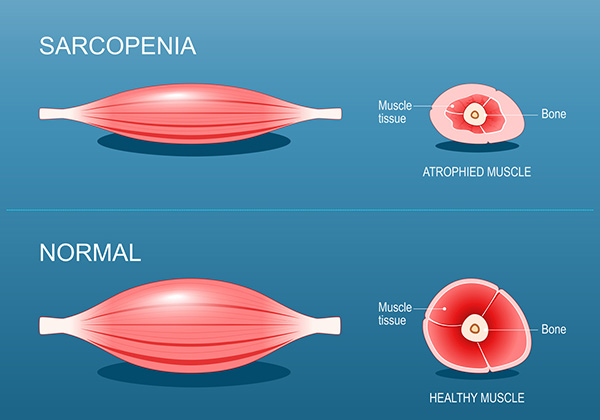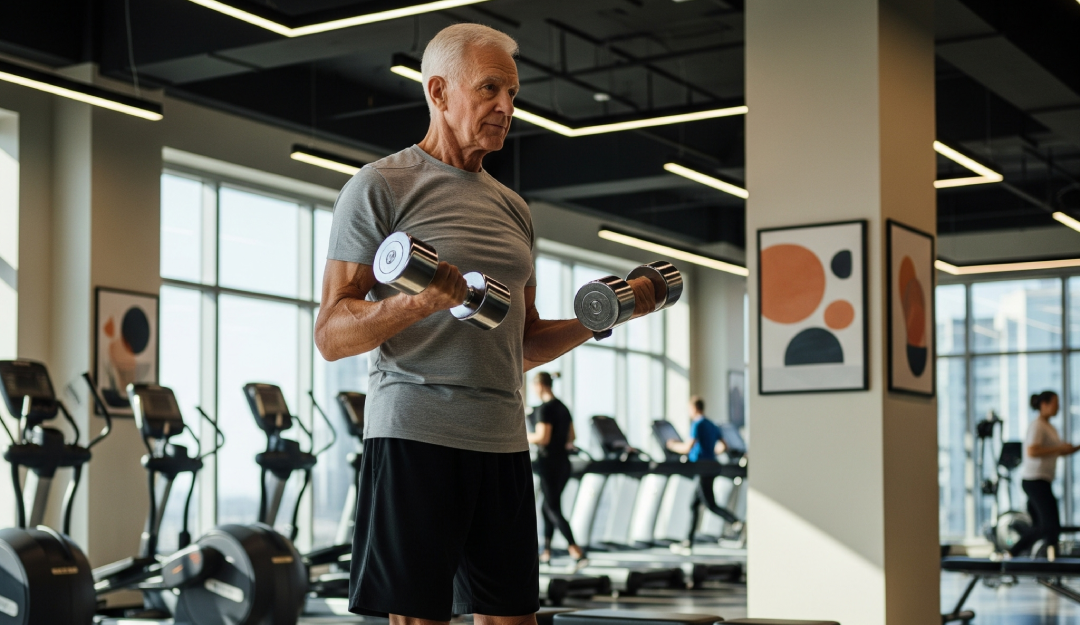Phone:
+6011-56331685
Email Address:
theneurofit@gmail.com

Have you ever noticed everyday activities like climbing stairs, carrying groceries, or standing up from a chair are becoming more difficult than they used to be? Or maybe you’ve felt your balance becoming less steady?
While some of these changes are a natural part of aging, there is a medical condition that many people don’t know about — and it could silently reduce your strength and independence. It’s called sarcopenia.
Sarcopenia is a condition where your muscles slowly lose their strength, size, and ability to function properly. It usually starts gradually as you age, and the symptoms can be so subtle that many people don’t notice it until they have a fall, struggle to walk longer distances, or become easily tired doing basic tasks.
It doesn’t only affect the very old — sarcopenia can begin as early as your 40s or 50s, and it becomes more serious with time if not managed.

(Image From Women’s Health Network)
Sarcopenia is more widespread than many people realise:
• Globally, around 10% to 27% of older adults are affected.
• In Asia, studies show:
◦ Around 11.5% of men and 16.7% of women aged 75–79 have sarcopenia.
◦ Among people over 80 years old, up to 48% may be affected.
• Even people under 60 can have early signs, with studies showing 8% to 36% prevalence in younger adults.
These numbers show that sarcopenia is not just an “old age” problem — it is a public health issue that can affect anyone as they grow older.
Sarcopenia doesn’t happen overnight, and it’s not caused by just one thing. Instead, it happens because of a combination of factors:
As we age, our body naturally loses muscle. This process starts around age 30 and speeds up after age 60 if no action is taken.
If you don’t move your body regularly, especially with resistance or strength exercises, your muscles will shrink and weaken over time.
Eating too little, or not getting enough protein and energy (carbohydrates), means your muscles don’t get the fuel they need to stay strong.
As you age, your body produces less of certain hormones like testosterone and growth hormone, which help maintain muscle. At the same time, it may produce more substances that break muscle down.
Low-grade, long-term inflammation in the body (common in older adults and people with chronic illnesses) can speed up muscle breakdown.
Mitochondria are the energy producers in your cells. As they become less efficient with age, your muscles get weaker.
Your nerves control your muscles. As the connection between nerves and muscles weakens with age, your muscles lose coordination and power.
Conditions like type 2 diabetes, heart disease, lung disease, and smoking can all increase the risk of sarcopenia.
Sarcopenia doesn’t just make you feel weak. If not managed, it can lead to serious consequences:
• Higher risk of falls and broken bones, especially in the hip and spine
• More difficulty with everyday activities like walking, bathing, or getting out of bed
• Greater chance of losing independence, requiring assistance or home care
• Increased hospital visits, longer recovery times, and higher medical costs
• Greater risk of chronic diseases like diabetes and heart problems
• Links to mental health issues such as depression and memory problems
Yes, in many cases, sarcopenia can be prevented, slowed down, or even reversed — especially when caught early.
Some of the most effective strategies include:
• Regular physical activity, especially strength training or resistance exercises
• A healthy, balanced diet that includes enough protein and calories
• Managing chronic diseases like diabetes or high blood pressure
• Staying socially and mentally active, which also supports better health
• Guided physiotherapy, especially if you already have weakness, balance problems, or difficulty moving

We help individuals improve their strength, balance, and confidence through personalised physiotherapy programs. If you’re feeling weaker, moving less, or noticing signs of muscle loss, don’t ignore it.
Sarcopenia is common, but it’s not something you have to accept as a normal part of aging. With the right care, you can stay strong, active, and independent for years to come.